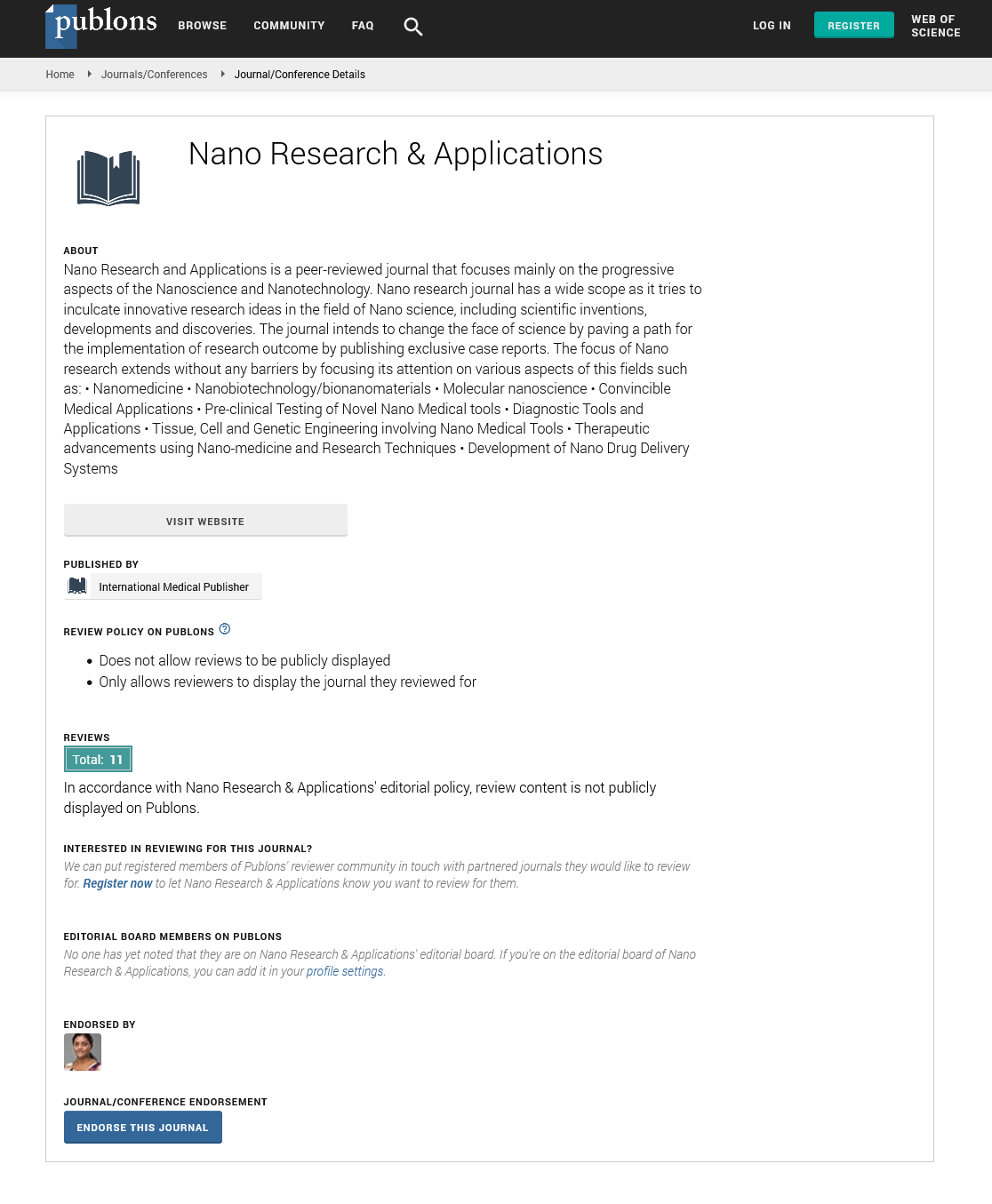ISSN : 2471-9838
Nano Research & Applications
Improving molecular weight of natural oil-plasticized PLA by chain extender
World Congress on Materials Science & Engineering
August 23-25, 2018 Amsterdam, Netherlands
Supanut Kitphaitun and M Rathanawan
The Petroleum and Petrochemical College, Thailand
Posters & Accepted Abstracts: Nano Res Appl
DOI: 10.21767/2471-9838-C4-018
Abstract
Polylactide (PLA) is biodegradable thermoplastic polyester with potential to replace conventional petrochemical-based polymers. Plasticized PLA is often found in many uses to avoid brittle fracture. In this work, cashew nut shell liquid (CNSL), a natural oil mainly consisting of cardanol (a phenolic lipid), was used as a plasticizer. In order to avoid its bleeding from the PLA bulk, it was added as an initiator during bulk ring-opening polymerization of lactide such that it was immobilized onto the PLA chains. The immobilized CNSL-plasticized PLA obtained from the synthesis has rather low molecular weight. Adding this natural oil at fixed content of 3% wt can reduce molecular weight of PLA. From Gel Permeation Chromatography (GPC) results, molecular weight of the (3% wt) immobilized CNSL-plasticized PLA were 3.93x10-4 g/mol, compared to 4.32x10-4 g/mol of the synthesized PLA. A chain extender, hexamethylene diisocyanate (HDI), is then added and varied from 1, 3, 5, 7% wt to further enhance the molecular weight of the (3% wt) immobilized CNSL-plasticized PLA. The maximum molecular weight of 5.03x10-4 g/mol is obtained by adding 5% wt HDI. From melt flow indexer (MFI) results, this immobilized CNSLplasticized PLA has the lowest melt flow index value of 51.4g/10 mins which means that it has the highest molecular weight. Also, the immobilized CNSLplasticized PLA with various HDI contents were subsequently investigated for their chemical structures by Fourier-transform Infrared Spectroscopy (FT-IR) and found that the characteristic ester absorption band appeared at 1691 cm-1 according to -C=O adjoining to -NH. From nuclear magnetic resonance (NMR) results, the chemical shifts at 3.2 ppm and 4.1 ppm were observed and assigned to the unit of HDI in PLA chains. Moreover, differential scanning calorimetry (DSC) results showed that increasing HDI content made Tg and Tm move toward lower temperature as a result of long chain alkane unit of HDI.
Biography
Supanut Kitphaitun has completed Bachelor’s degree from King Mongkut’s Institute of Technology Ladkrabang, a major in Nanomaterials Engineering with 1st honours. Now, he is pursuing Master’s degree of Polymer Science at the Petroleum and Petrochemical College, Chulalongkorn University. He is a working under supervision of Prof. Rathanawan Magaraphan.
E-mail: Rathanawan.K@chula.ac.th supanut-k@hotmail.com
Google Scholar citation report
Citations : 387
Nano Research & Applications received 387 citations as per Google Scholar report
Nano Research & Applications peer review process verified at publons
Abstracted/Indexed in
- Google Scholar
- China National Knowledge Infrastructure (CNKI)
- Directory of Research Journal Indexing (DRJI)
- WorldCat
- Publons
- Secret Search Engine Labs
- Euro Pub
Open Access Journals
- Aquaculture & Veterinary Science
- Chemistry & Chemical Sciences
- Clinical Sciences
- Engineering
- General Science
- Genetics & Molecular Biology
- Health Care & Nursing
- Immunology & Microbiology
- Materials Science
- Mathematics & Physics
- Medical Sciences
- Neurology & Psychiatry
- Oncology & Cancer Science
- Pharmaceutical Sciences
